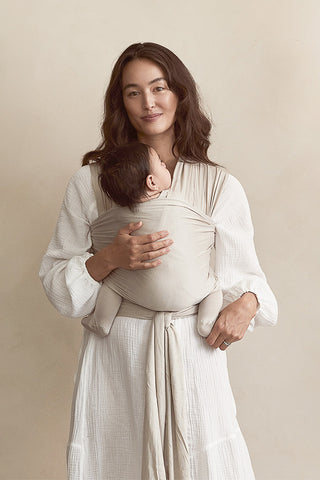
If love is a language, then teaching our children to be conversant is our No. 1 goal as caregivers. But love is so multifaceted that it seems boundless at times. There are so many different types of love and ways of loving that we learn as we mature. Helping our children flourish in the many different lessons of love is one of the greatest gifts we can give them.
Love when it’s easy
It’s a piece of cake to love on the easy day—when the sun is shining and our kids are well-behaved. But don’t take the breezy days for granted either. Centering each and every day around love will help your kids find gratitude in their day-to-day and view the world with an emotionally mature mindset. Squeeze in small gestures of love and find little ways to express it throughout your daily routine. Depending on how your child receives love this can be through physical touch, quality time, etc. Reward children for behaving in loving ways. That includes saying thank you, giving compliments, spending time together, offering a hug, sharing what you treasure, asking about each other’s day, and more. Love is not just a feeling, a duty, or three little words. Love is how you act.
Love when it’s hard
As parents, we love our children no matter what, even on the hardest days when we might not really enjoy them all that much. It happens to all of us. And it happens to our children, too. Maybe they had a bad day at school or they are grumpy because that pesky molar is finally making its grand debut. We need love most when we’re not feeling loving. When we’re mad, frustrated, or tested beyond our limits. Unconditional love means our child feels our love without the requirement of the child doing anything at all. Say, “I love you.” Not just at bedtime, but say it at times when they don’t expect to hear it—when they’ve done something wrong and have to be corrected, when they are down on themselves and don’t feel lovable, random times like car rides or when they are just walking across the room. It is important that children understand that there is nothing that they can do to make you love them more or love them less.
Love yourself
This one might be the hardest lesson of all to teach because our children learn about self-love by watching us. They watch us complain about the way our jeans fit or moan over a newly sprouted gray hair. They absorb these small, seemingly insignificant moments into their own developing psyche. How can we expect our children to grow up loving themselves if we aren’t modeling it ourselves? Self-love is not a one-dimensional concept that you possess or you don’t. It is a multidimensional learning process that requires daily attention. If we, as parents, commit to modeling consistent self-love, our children will learn by example.
Compassion is the root of self-love. Ironically, it often seems easier to extend compassion to others while criticizing ourselves. The next time you experience self-criticism, ask, “If my child were in my exact position, what would I say to them? Feel toward them?” Set a loving example. If you want your kids to have the self-esteem to live their best life possible, you have to teach them to love themselves fully. So, take good care of you first, and then take good care of your brood. When you love and care for yourself, you can best love and care for others.
Love others
When we love others by doing and filling needs we see, our kids follow our example.
As the author Bob Goff writes, “Love does.” Talk with your kids about a family who could use a meal. As you cook together, discuss how a meal will serve them. Teaching, acting, doing, and asking will encourage our children to be aware of others’ needs. Over time, loving others in practical ways will become second nature to them.
Our children don’t learn about love by reading about it in a book or watching it in a movie. (Although we’re just as obsessed with Encanto as they are.) They learn by watching us. They watch us in the small moments and in the big ones. They watch how we love ourselves and how we love strangers on the street. There’s no doubt we love our children. Like to-the-moon-and-back-then-up-to-the-moon-again-and-back-once-more times a million. Aching, overflowing, unconditional, real love. Let that cup overfloweth unto everything you touch.








